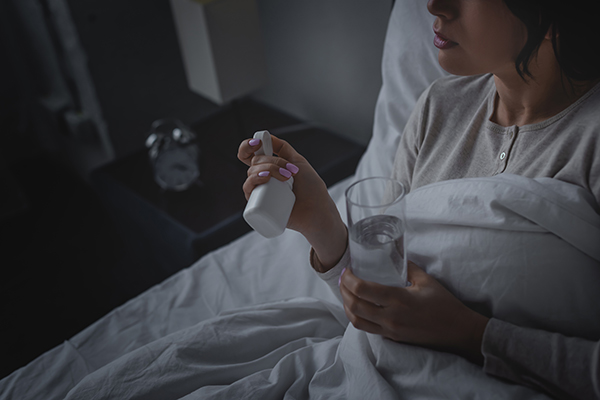Ambien is a medication that belongs to a class of drugs called sedative-hypnotics. It is a “z-drug” that is used to treat insomnia. Ambien works by activating the GABA neurotransmitter to slow down the central nervous system and brain. It is only supposed to be used on a short-term basis. 
Ambien for Recreational Abuse
Ambien was developed as a safer alternative to benzodiazepines for those that have issues with sleep. It may take longer for a person to develop an addiction to Ambien, however, it is still habit-forming. The DEA lists Ambien as a Schedule IV controlled substance. This means it has medicinal use and is not likely to be abused, however, individuals do misuse Ambien for recreational purposes. When Ambien is misused, it can produce a euphoric or hallucinogenic type high.
Is Ambien Often Misused?
Ambien is supposed to be taken right before bedtime, but people have been known to take the drug at any time for euphoria. It takes away insecurities and self-conscious behavior. Also, individuals will often mix Ambien with alcohol or other drugs, especially benzodiazepines, to amplify the effects. Ambien may be a safer drug than the alternative, but, it is not a safe drug. It is widely abused, especially in those that already have addiction issues. Ambien addiction causes physical dependence that brings on painful withdrawal symptoms when you try to get off the drug. The Industrial Psychiatry Journal reports:
Zolpidem, an imidazoline nonbenzodiazepine sedative drug, is used widely. Initial reports showed minimal abuse potential. However, multiple reports have appeared of dose escalation and abuse. Subjective effects of high-dose zolpidem are not known. In light of accumulating evidence of abuse potential, we hereby report a case of high-dose dependence and a review of relevant literature. A 33-year-old male presented with 5 years of daily use of 600–1700 mg of zolpidem tartrate. He reported subjective effects of euphoria, intense craving, and inability to stop use. (NIH)
Adverse Effects of Ambien Abuse
Ambien abuse can cause many different adverse effects. Some of the effects can occur immediately and some may also accumulate after weeks. Since Ambien slows down the central nervous system, it also slows down your breathing and heart rate. Misusing the drug can cause respiratory failure, unconsciousness, and even death. Some of the other side effects of Ambien can include:
- Hallucinations
- Delusions
- Extreme sleepiness
- Clumsiness
- Aggression
- Dizziness
- Loss of balance
- Loss of consciousness
- Nausea and vomiting
Ambien abuse can also cause several other negative side-effects. One of the most common short-term risks is retrograde amnesia. Some of the other complications that it can cause are delusional thinking, sleepwalking, nocturnal eating, and sensory disturbances. Some users have reported feeling tired, confused, sluggish, and foggy-headed after taking the drug. Ambien can also make symptoms of depression and anxiety worse. And if an individual takes the drug for a long-term period, it can even start causing issues with their sleep (rebound insomnia). Combining Ambien with alcohol or other benzodiazepines is extremely dangerous. These are all central nervous system depressants. When they are combined, the risk of respiratory arrest and overdose deaths is dramatically increased.
Treatment for Ambien Addiction
If you or someone you love is struggling with an addiction, our addiction specialists are available around the clock to assist you. Evoke Wellness offers safe medical detoxification in a comfortable environment and with minimal discomfort. We provide residential treatment in a structured environment and then provide you with aftercare support to help lead you on a road to long-lasting recovery. You don’t have to suffer any longer. Call us today.


